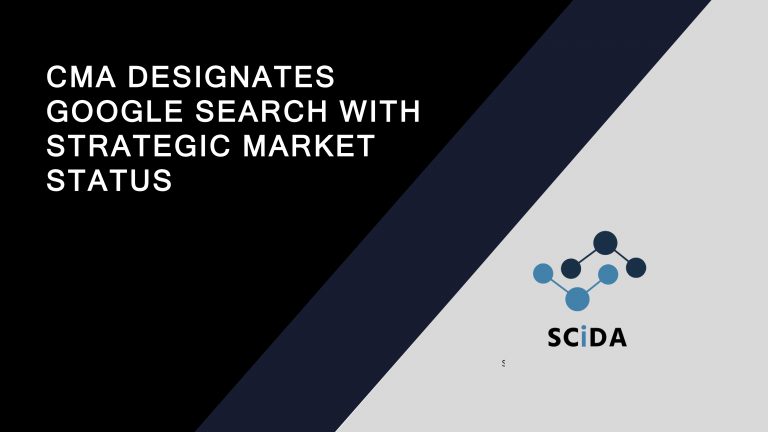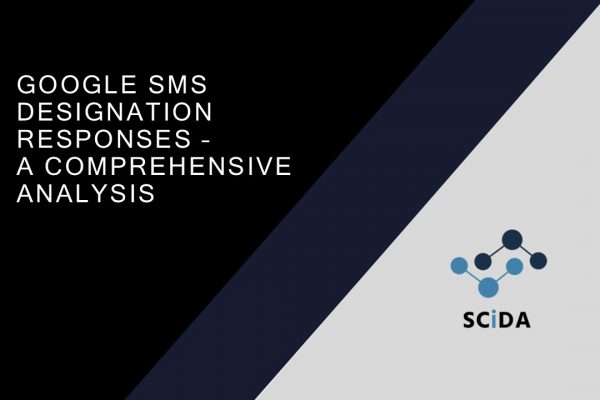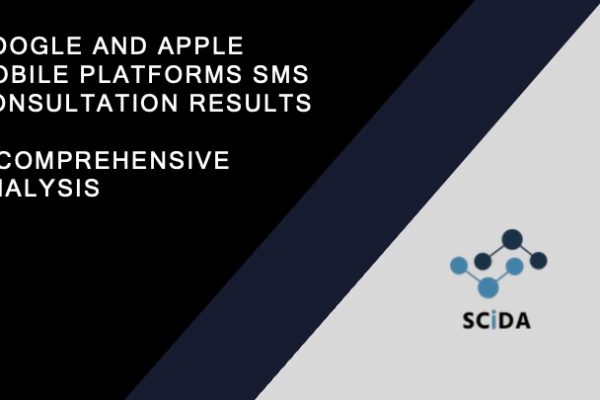The Competition and Markets Authority issued its first SMS designation under the DMCCA 2024, targeting Google’s general search services. With over 90% market share for at least 15 years and £3-4 billion in supernormal profits from UK services in 2024 alone, Google’s dominance faces its first serious regulatory test. This designation opens the door to conduct requirements that could fundamentally reshape how Google operates in the UK digital markets.
By Anush Ganesh
A first for the CMA
On 10 October 2025, the Competition and Markets Authority issued its 156 page final decision designating Google as having Strategic Market Status in the provision of general search and search advertising services under the Digital Markets, Competition and Consumers Act 2024. This designation represents the first major implementation of the UK’s DMCCA regime, following an extensive investigation (see our blog on the consultations here) that gathered evidence from Google, over 80 market participants, and received 34 consultation responses (paras 2.42-2.43).

Scope of the Designation
The designation covers Google Search, search advertising services including Google Ads and SA360, and AI-integrated features. AI Overviews and AI Mode fall explicitly within scope because they form part of Google’s general search infrastructure and appear directly on the SERP (paras 4.22). Google Discover also falls within the designation (para 4.40).

Following Google’s representations, the CMA determined that organic search syndication products like Programmable Search Engine and Web Search Syndication are only within scope when configured to search the entire world wide web rather than specific sites or pages (paras 4.32-4.36). When publishers configure these products to search only specific sites, they have actively chosen not to use general search functionality (para 4.36). AdSense for Search follows the same logic (paras 4.111-4.113).
The CMA grouped general search and search advertising as a single digital activity, reflecting the two-sided nature of Google’s business model (paras 4.118-4.119). Google and almost all third parties supported this approach (para 4.116).
Gemini outside the scope of the designation
The exclusion of Google’s Gemini AI assistant represents one of the most significant aspects of the decision. From a supply perspective, Gemini is accessed through dedicated interfaces distinct from Google Search, monetised through subscription rather than advertising (para 4.64). When Gemini uses Google Search infrastructure through grounding, this occurs in only a minority of cases (para 4.67). The information returned is incorporated into context Gemini uses to generate an original response through its large language model, rather than being directly displayed (para 4.70).

The CMA concluded that while input provided by Google Search to Gemini is within scope, the operation carried out by Gemini in blending that input with other inputs is not sufficient to bring Gemini within scope (para 4.72). Gemini acts as an intermediary rather than providing general search directly (para 4.71).
From the demand side, consumer research revealed that AI assistants are more often used for answering complex questions, content creation and idea generation rather than traditional search tasks (paras 4.73-4.78). When all queries submitted to all AI assistants are aggregated, they equal only about 5-9% of queries submitted to Google Search (para 4.83). Gemini itself accounts for less than 1% of Google Search queries for non-business users (para 4.75). When focusing specifically on search-grounded AI queries, AI assistant queries constitute only 0-5% of Google Search queries (para 5.30).
The CMA concluded that Gemini is not currently within scope, though this determination does not preclude future reassessment (4.90). The CMA’s position seems to be well thought out based on the responses it received during the consultation in June (see our blog for more details).
Google’s Market Dominance – Search overwhelmingly within the scope
Google Search has accounted for over 90% market share in the UK for at least 15 years (para 5.246). Bing holds approximately 0-5% (para 5.246). No traditional general search providers have materially grown relative to Google in 15 years. Google.com is one of the most common search queries on Bing (para 5.34). Microsoft submitted that by far Bing’s main competitor is Google (para 5.35).
In 2024, UK users inputted 100-300 billion queries on Google’s general search products, averaging 5-10 daily queries per UK citizen (para 5.276). Google had over 60-70 million logged-in mobile users and 20-30 million desktop users in the UK (para 4.122). Ofcom found Google Search reached 83% of UK online adults in May 2024, with 49% visiting daily (para 5.276(c)).

Google generated £10-20 billion of search advertising revenue from UK users in 2024, representing over 90-100% of UK search advertising by general search providers (para 5.277). Over 200,000 unique entities advertised using Google’s search advertising, equivalent to 10-15% of all UK businesses (para 5.277(b)). The cost equals nearly £400 per household per year (para 5.277(c)). Specialised search providers have functional differences limiting their status as alternatives, as they can only respond to queries on specific topics (para 5.247). Social media platforms similarly provide limited competitive constraints (para 5.248).
AI Overviews within the scope of the designation
ChatGPT has grown quickly, receiving over 1-2 billion queries in the UK in June 2025 (para 5.249). ChatGPT queries as a percentage of Google Search increased from 0-5% in December 2024 to 10-15% by June 2025 (para 5.28). However, AI assistants have a wide range of uses, only some overlapping with general search (para 5.250). Use for search-grounded AI queries specifically remains low compared to Google’s general search products (para 5.250).

Google is well-positioned to respond by incorporating generative AI features like AI Overviews and AI Mode directly into existing products (para 5.262). Google’s AI Overviews are already displayed in response to more queries than the total number of queries ChatGPT receives across all use cases (para 5.262). AI assistants must overcome the same barriers to entry as traditional general search providers (para 5.263). Google has also developed the Gemini AI assistant which benefits from access to Google’s general search services and Android integration (para 5.264).
The CMA concluded that while some AI assistants represent an emerging competitive threat, it remains unclear whether they will develop into a sustained and significant competitor. These developments may in fact strengthen Google’s position given its strategy to embed generative AI into existing products (para 5.265-5.267). Considering all this, the CMA has rightly included AI Overviews within the scope of the designation.
Advertising within the scope of the designation
Google maintains significant default positions with Apple devices in the UK, Android devices in the US, and Chrome desktop browsers (para 5.256). Google’s extensive payments to Apple to maintain default status demonstrate both willingness and ability to maintain these positions while remaining highly profitable (para 5.256). Even when users are presented with a choice regarding their default search engine, Google continues to be overwhelmingly selected (para 5.256).
Google’s ecosystem provides access to data that enables tailoring search products in ways others cannot, particularly through Chrome and Android control (para 5.256). Click-and-query data allows search engines to improve quality and relevance of results, with greater scale enabling more relevant results particularly for uncommon queries (5.256(c)). Google’s web index contains 20-30 billion websites and hundreds of billions of web pages (para 4.15). Brave took 15 years to achieve independence from third-party indexes (para 5.215(a)).

Competitors face monetisation barriers. DuckDuckGo described a reinforcing feedback loop where more users creates better results, attracting more advertisers, generating more revenue, enabling Google to buy more default positions, which increases users on the platform (para 5.218). Ecosia noted that advertisers go where they can reach their target audience best, which is Google and Microsoft given their combined market share exceeds 90% (para 5.218).
Google’s positions in general search and search advertising reinforce one another through a virtuous cycle (para 5.257). The CMA found that Google earned at least £3-4 billion of profits in 2024 from UK general search services above a 10-15% weighted average cost of capital (para 5.257). The CMA therefore found sufficient reasons to include search advertising within the scope of the designation.
The important role of Consultation
The CMA’s consultation genuinely shaped the final decision. The authority received 50 initial responses and 34 responses to the Proposed Decision, held over 80 bilateral meetings, and commissioned independent consumer research (2.42). The CMA stated that all responses and representations have been considered (para 2.43).

Google’s representations led to important scope refinements. Google submitted that its organic search syndication products were fundamentally different from general search services (para 4.30). While the CMA did not accept this entirely, it determined that where publishers configure these products to search only specific sites or pages, they fall outside the designation’s scope (paras 4.32, 4.36-4.37). The same logic applied to AdSense for Search (paras 4.110-4.113).
Stakeholder input provided crucial evidence supporting market power findings. Microsoft submitted that by far Bing’s main competitor is Google (para 5.35). Multiple competitors documented barriers they face. Specialised search providers indicated that SERP changes have impacted their user behaviour or click-through rates in the last five years (para 5.280).
International Regulatory Developments
The CMA considered various regulatory and legal developments in other jurisdictions but found they are not likely to be sufficient in scope, timeliness, and impact to eliminate Google’s market power in general search services in the UK over at least the next five years (para 5.242).
Regarding the EU’s Digital Markets Act, the territorial reach does not extend to the UK, so Google may carve out the UK from compliance measures (para 5.242). Even if Google voluntarily extends its DMA responses to the UK, these obligations aim for contestability and fairness, not eliminating market power directly (para 5.242). The European Commission has made preliminary findings that Alphabet failed to comply in certain respects (para 5.242).

Regarding US antitrust cases, the remedies opinion makes no express provision for remedies to extend beyond the US (para 5.242). Google has publicly indicated it intends to appeal on liability in both US cases (para 5.242). Regarding Japan’s Mobile Software Competition Act, the effect on Google’s provision of general search services in the UK is unclear (para 5.242).
Position of Strategic Significance
Beyond substantial and entrenched market power, the CMA must find that an undertaking has a position of strategic significance (in accordance with S. 2 DMCCA) to designate it with SMS. The CMA found that Google has such a position based on significant size or scale and use by a significant number of other undertakings (para 5.273).
Google’s general search services are used daily by a very large proportion of the UK population, with Google acting as the gateway to the Internet for many people (para 5.276(a)). As of December 2024, Google had more than 60-70 million logged-in users on mobile and just under 20-30 million on desktop in the UK (para 5.276(b)). Google’s share of queries among traditional general search providers exceeded 90-100% throughout 2024 (para 5.276(a)).

In 2024, just over 800-900 billion search advertisements were displayed by Google in the UK, generating approximately 20-30 billion search advertising clicks (para 5.277). Around 200,000-300,000 unique entities advertised using Google’s search advertising in the UK, equivalent to approximately 10-15% of all UK businesses (para 5.278).
Google’s general search services are an important means by which other firms access customers, facilitate transactions, and carry out their business (para 5.280). Google has developed features that facilitate users’ interactions across various industries, including Google Maps for local businesses, Google Flights and Google Hotel Finder for comparison shopping, and Google Shopping for retailers (para 5.280). Google is also an important source of traffic for specialised search providers, who on average rely on Google for approximately 30-40% of their traffic in 2024 (para 5.280).
The Forward-Looking Assessment
The designation lasts five years from 10 October 2025 and opens the door to potential conduct requirements. The CMA emphasises that SMS designation does not find or assume wrongdoing. The Act requires the CMA to carry out a forward-looking assessment of at least five years (para 2.19). The CMA found that Google’s substantial market power is entrenched, meaning it is expected to persist over at least this five-year period.

Despite significant growth in AI assistant usage, use specifically for search-grounded AI queries remains low compared to Google Search. AI assistants constitute only 0-5% of the volume of Google Search queries when measured by search-grounded queries (para 5.30). The future development of AI assistants for general search and search advertising remains highly uncertain (para 5.261).
The designation establishes several important precedents for the UK’s new digital markets regime. The CMA will not use traditional market definition exercises in assessing market power. Forward-looking assessment must consider AI and emerging technologies. Consultation feedback genuinely matters and can lead to material changes in scope. International regulatory developments alone will not eliminate market power in UK markets. Precision in scope definition is essential.
Conclusion
This decision represents the first major test of the UK’s new digital markets regime, a framework specifically designed for the dynamic, fast-moving nature of digital competition. The CMA has taken a balanced approach, acknowledging AI assistants as emerging threats while recognising they have not yet materially constrained Google’s power. The careful exclusion of Gemini demonstrates evidence-based decision-making. The scope refinements following consultation show genuine engagement with stakeholders.

The CMA found that Google has had an unparalleled position in general search services for an extended period, with a share exceeding 90% for at least 15 years, earning at least £3-4 billion in supernormal profits from UK general search services in 2024 alone. The designation establishes that Google has substantial and entrenched market power, protected by formidable barriers including default positions maintained through significant payments to Apple, data advantages from its extensive ecosystem, substantial infrastructure costs, and challenges competitors face in monetising their services.
As the CMA moves toward its first conduct requirements under the new regime, one thing is clear. Google’s 15-year run of unchallenged dominance in UK search is facing its first serious regulatory test. The decisions made in this designation will likely determine not just Google’s future in the UK market, but the broader trajectory of digital market regulation in the AI era. Most importantly, the decision establishes that market power in digital markets can be assessed without traditional market definition, using a flexible, forward-looking framework appropriate for the digital economy.





